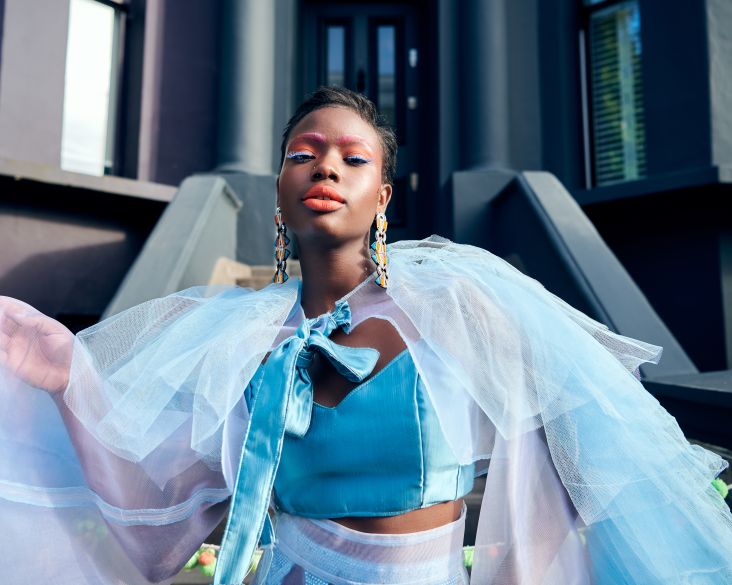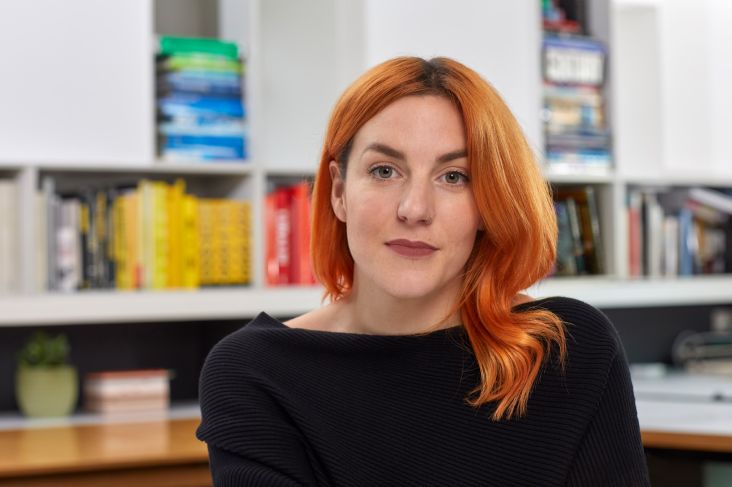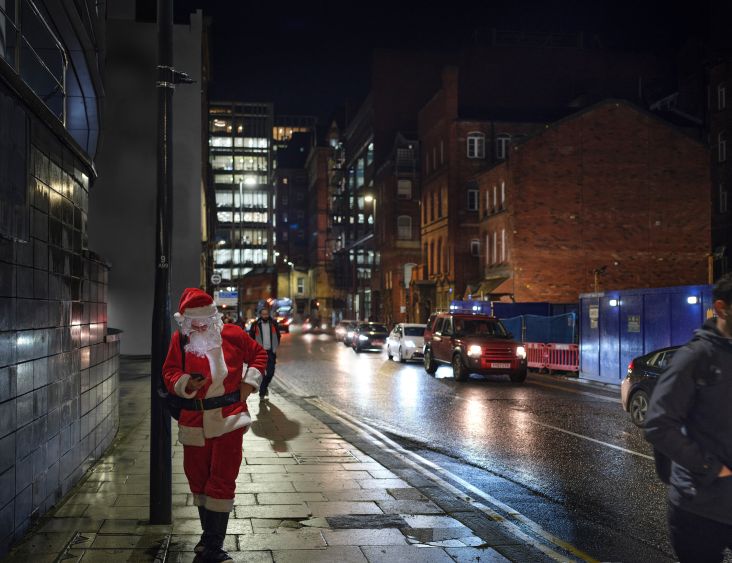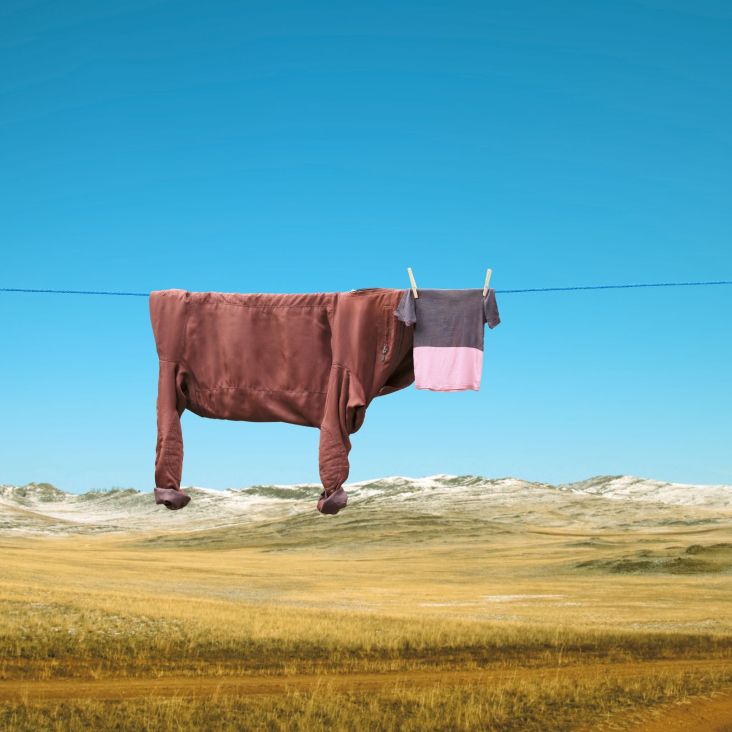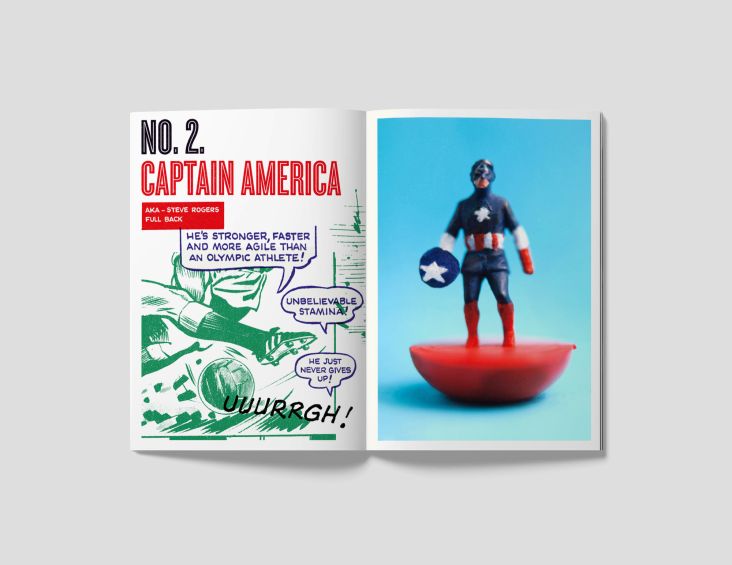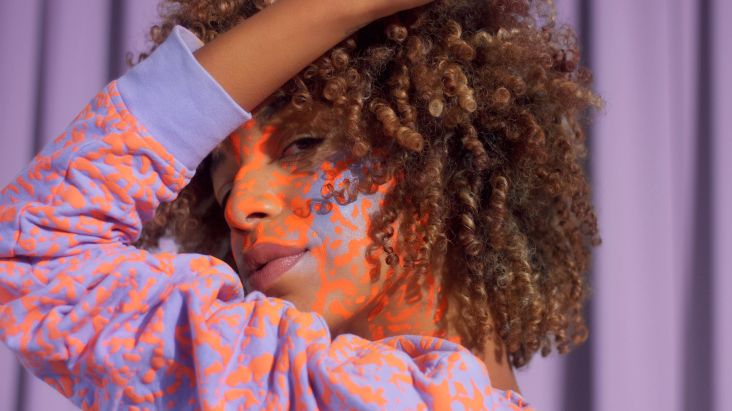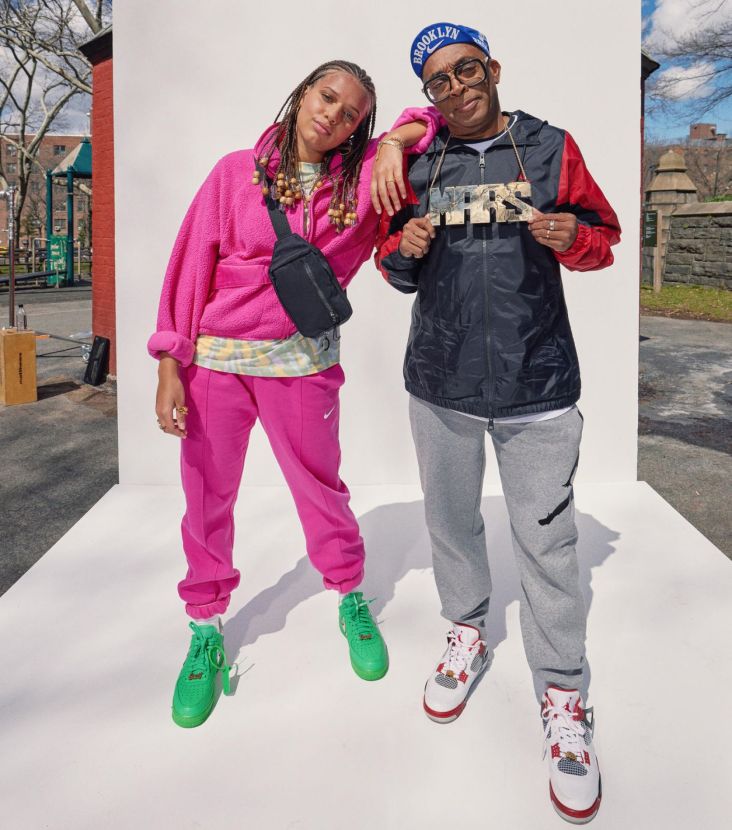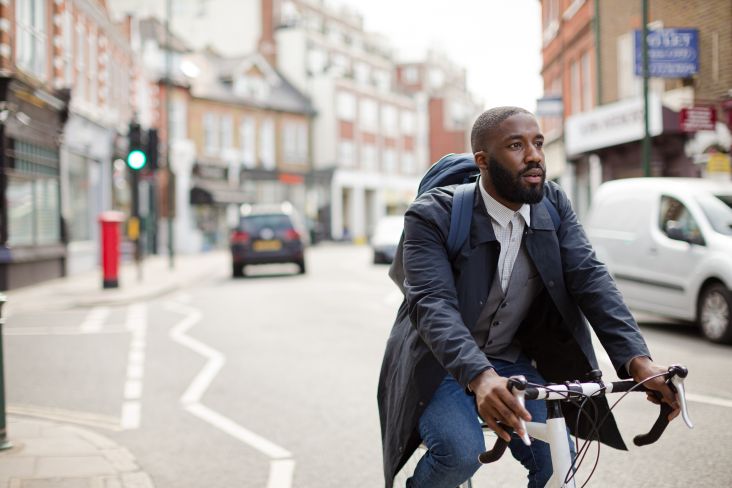These creative agencies are addressing World Cup controversy through design
First, there were 32 contenders, and now, with the final match between France and Argentina scheduled for Sunday evening, we're down to two. But something else has made it all this way alongside the final competing teams, too: controversy.
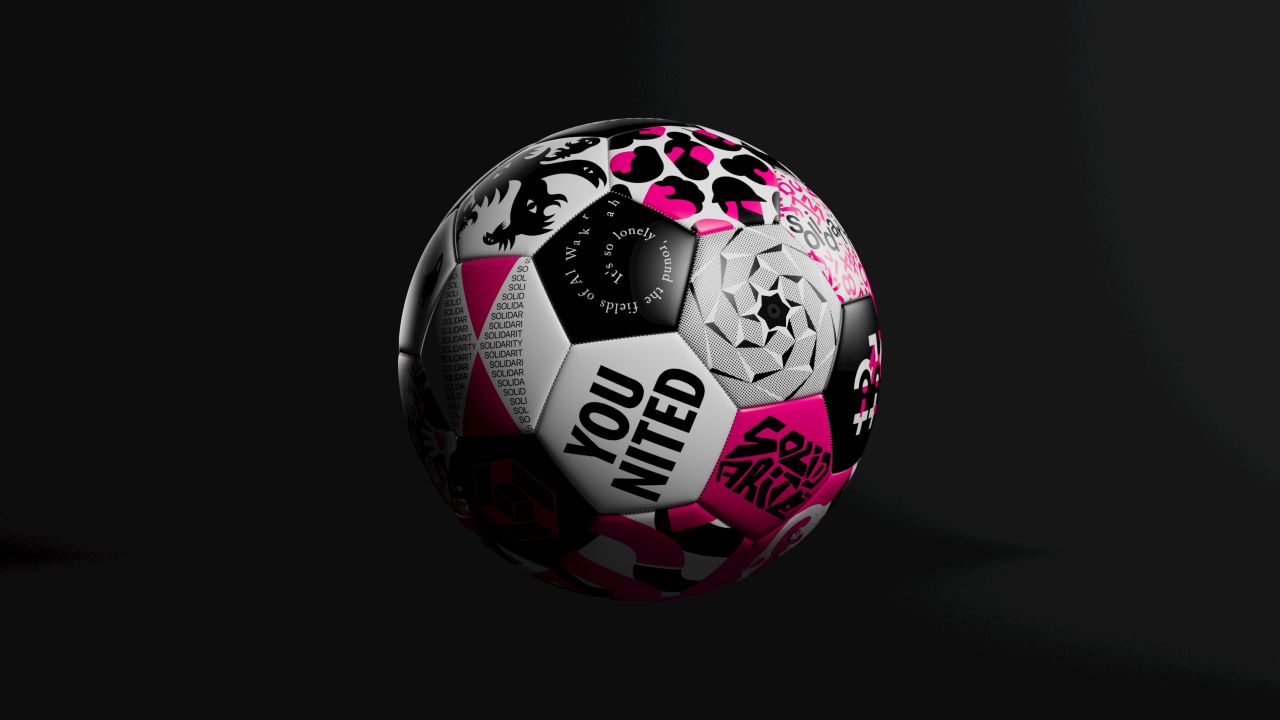
Credit: Ico/Humanity FC
Global sporting events are no stranger to scandal and ethical grey areas, but the conversation around this year's World Cup has been particularly fraught. FIFA has come under fire for a number of issues, not least the choice to host the Cup in Qatar, a nation embroiled in allegations of corruption and human rights violations. Some say that the Cup is directly benefiting from some of the nation's controversial track record regarding the mistreatment of migrant workers.
Design has played an important role in many conversations about the ethical issues surrounding this year's World Cup. From debates over whether or not unauthorised pro-LGBT+ armbands could be worn as part of players' kits in protest of Qatar's stance on LGBT+ rights to Hummel's use of colour cues in the Denmark team's kit design to signal to mourning for a host of alleged human rights violations in Qatar, the visual statements being made during this World Cup have come centre stage.
But it's not just teams and sports brands that are navigating how to express themselves whilst treading the fine line between celebrating the beautiful game of football and reckoning with the ugliness inherent in the way that the business side of things is managed at a global scale. The creative world is weighing in, too.
Take Leeds-based illustrator Darren Cullen, who designed 6,500 satirical "dead worker" World Cup trading stickers and distributed them in shops where genuine stickers would be found. Cullen isn't the only designer challenging the allegations of corruption and cruelty surrounding the event. Ever since the 2015 announcement that Qatar would host the 2022 competition, anonymous designers on Reddit have been curating "anti-logos" in protest of the nation's involvement.
While it's not surprising that anonymous designers and political artists like Cullen would take on the controversy surrounding the Cup, it is slightly more uncommon to see creative agencies taking a stand around a matter so fraught – especially when sports branding and campaign work make for lucrative business in the branding and advertising fields.
But at least two agencies are determined to raise awareness – and funds – highlighting the human rights concerns in Qatar and the inherent conflict of the Cup's presence there through design and creative collaboration.
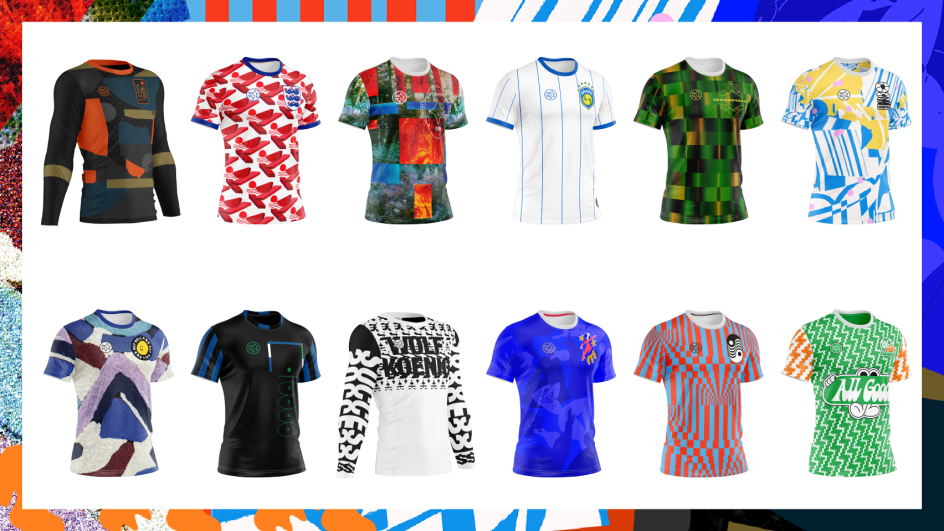
Credit: Hen's Teeth
One of those is the Dublin-based creative agency Hen's Teeth, which partnered with Amnesty International on a bold and meaningful statement through design. The Goalissimo project is a celebration of football featuring 13 artists from around the world. Each artist has used the jersey as a canvas to reimagine their nation's shirt to create the Hen's Teeth dream team. All profits from sales of the shirts will be donated to Amnesty International's Campaign for Migrant Workers in Qatar.
Included in the Hen's Teeth starting lineup are jerseys for the finalists, France (illustrated by Marylou Faure and Argentina, designed by Sebastian Curi and Macarena Luzi. The full collection includes jersey designs for Mexico, England, the USA, Cameroon, the Netherlands, Belgium, Germany, and South Korea. The shirts are available for pre-order now.
"The World Cup is one of those few events that genuinely brings folks together in a positive way, but we can't ignore the incredibly dark side of this year's event and what has happened in the build-up to the competition in Qatar," said Greg Spring, founder and creative director at Hen's Teeth. "It felt like the right time to do a show like this with some of our favourite artists from around the globe and hopefully raise some much-needed funds for Amnesty's campaign for compensation for the migrant workers impacted."
Vivek Bhatia, creative director at Ico, echoed Spring's sentiments. Bhatia told Creative Boom: "As a studio of football fans, the World Cup is the pinnacle, an incredibly exciting event, but this time around, it feels seriously tainted. We wanted to do something that would make a statement that the game is up when it comes to corruption and exploitation in football."
Like Hen's Teeth, Bhatia and his team at Ico were compelled to bring artists together for a meaningful fundraiser that both celebrates the uniting power of football whilst acknowledging the ugly truths at play – with the hopes of doing some concrete good along the way. Enter Humanity FC, Ico's creative response to the issues surrounding the 2022 World Cup.
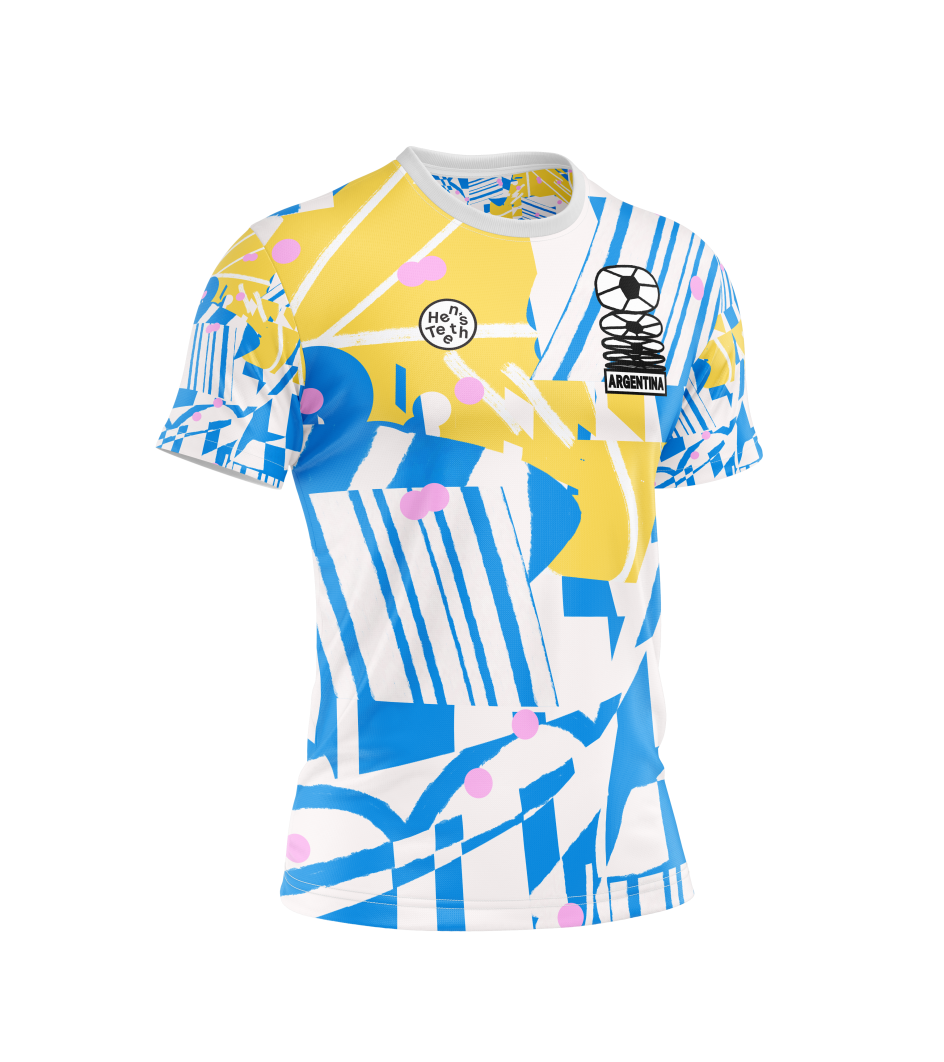
Credit: Hen's Teeth
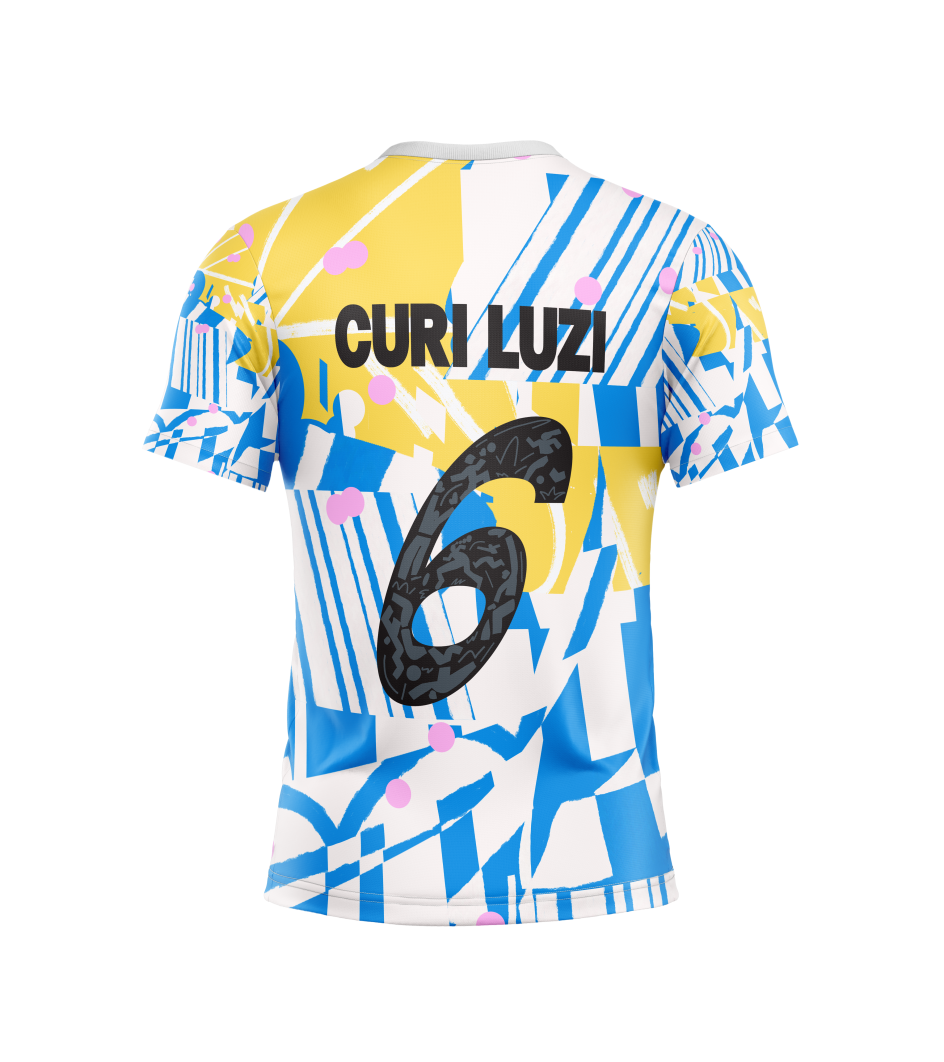
Credit: Hen's Teeth
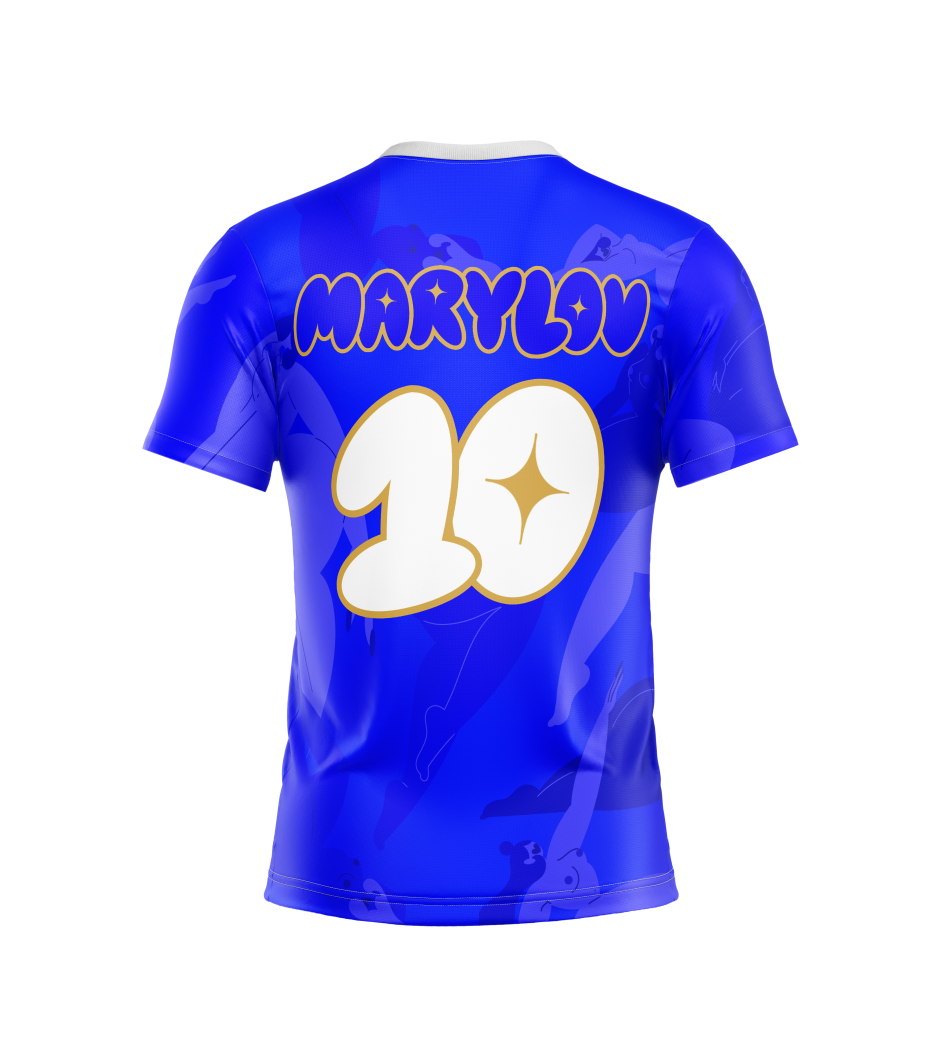
Credit: Hen's Teeth
Humanity FC brought together 32 international creatives of 27 nationalities to help create one unique football. The eclectic mix of designers, illustrators, studios, architects and writers was tasked by Ico to interpret the theme of 'solidarity' - intended to positively respond to the negativity surrounding this year's World Cup.
The ball will be raffled in the new year. Tickets can be bought now, with proceeds benefiting Equidem, a charity working to expose the injustices faced by migrant workers and support those workers directly. Equidem is currently making plans to launch a major investigation into all eight World Cup stadiums with their team of migrant worker investigators.
To create the Humanity FC ball, each participating creative was given one of the football's 32 hexagonal or pentagonal panels to illustrate. "The result is a one-of-a-kind piece of art designed to remind audiences that although we may cheer for different teams, ultimately, we're all on the same side," said Ico's Creative Director Vivek Bhatia.
And for the artists involved, the impact reaches far beyond this moment and this particular World Cup.
Adam G, designer and co-founder of Trüf Creative told Creative Boom that Humanity FC "definitely spreads awareness of the inequity and unfair treatment of the labourers in Qatar, but more importantly, I think it helps shed light on the treatment and exploitation of labourers globally – a broader problem."
Alessandro Brunetti, another contributor to the Humanity FC ball, agreed and added that designing in service of making a statement against corruption and exploitation is crucial to his process. Brunetti told Creative Boom: "Design plays a central role in our progress as a society: this is a fact. Designers, at least some of us, want and need this progress to be positive. Therefore we are all thinking, researching, testing, sketching, planning, writing, developing, and trying to the best of our skills and abilities to design projects that could have, some less, some more, but at least always, a positive impact on the cultural and social sphere."
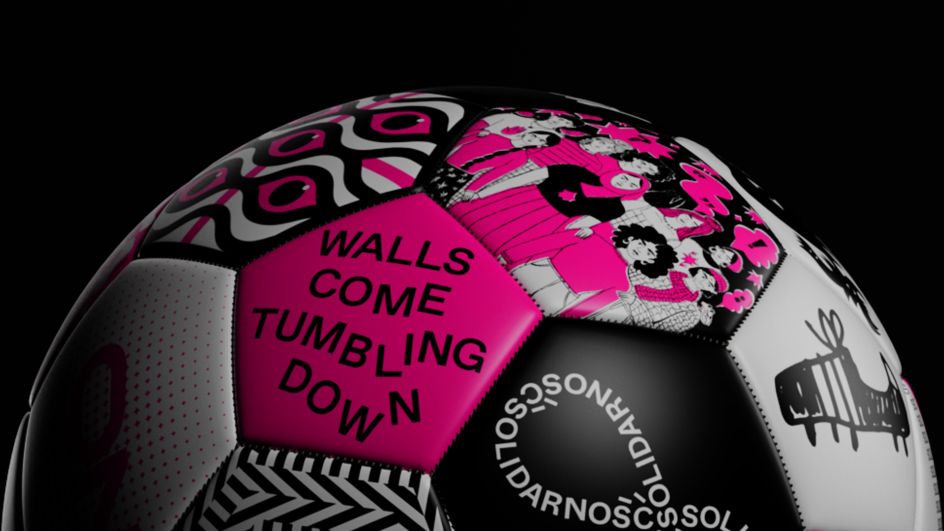
Credit: Ico/Humanity FC
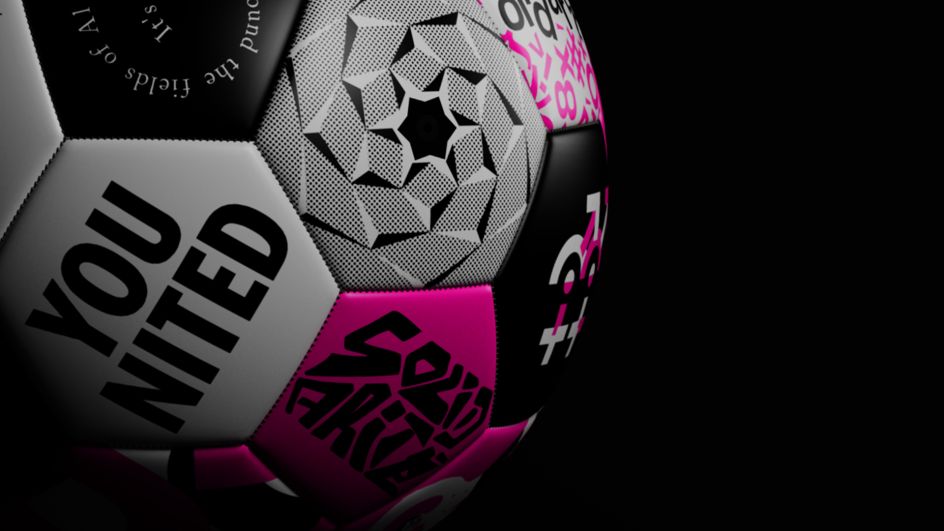
Credit: Ico/Humanity FC
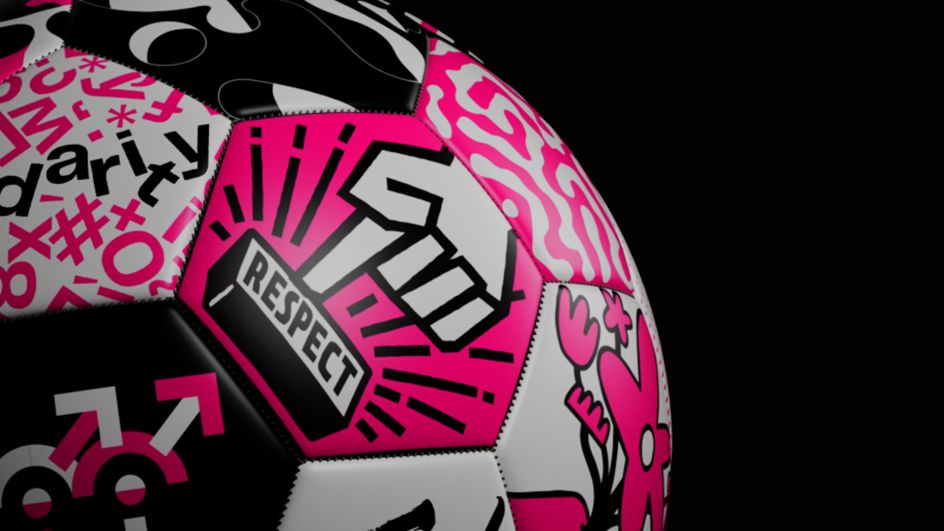
Credit: Ico/Humanity FC
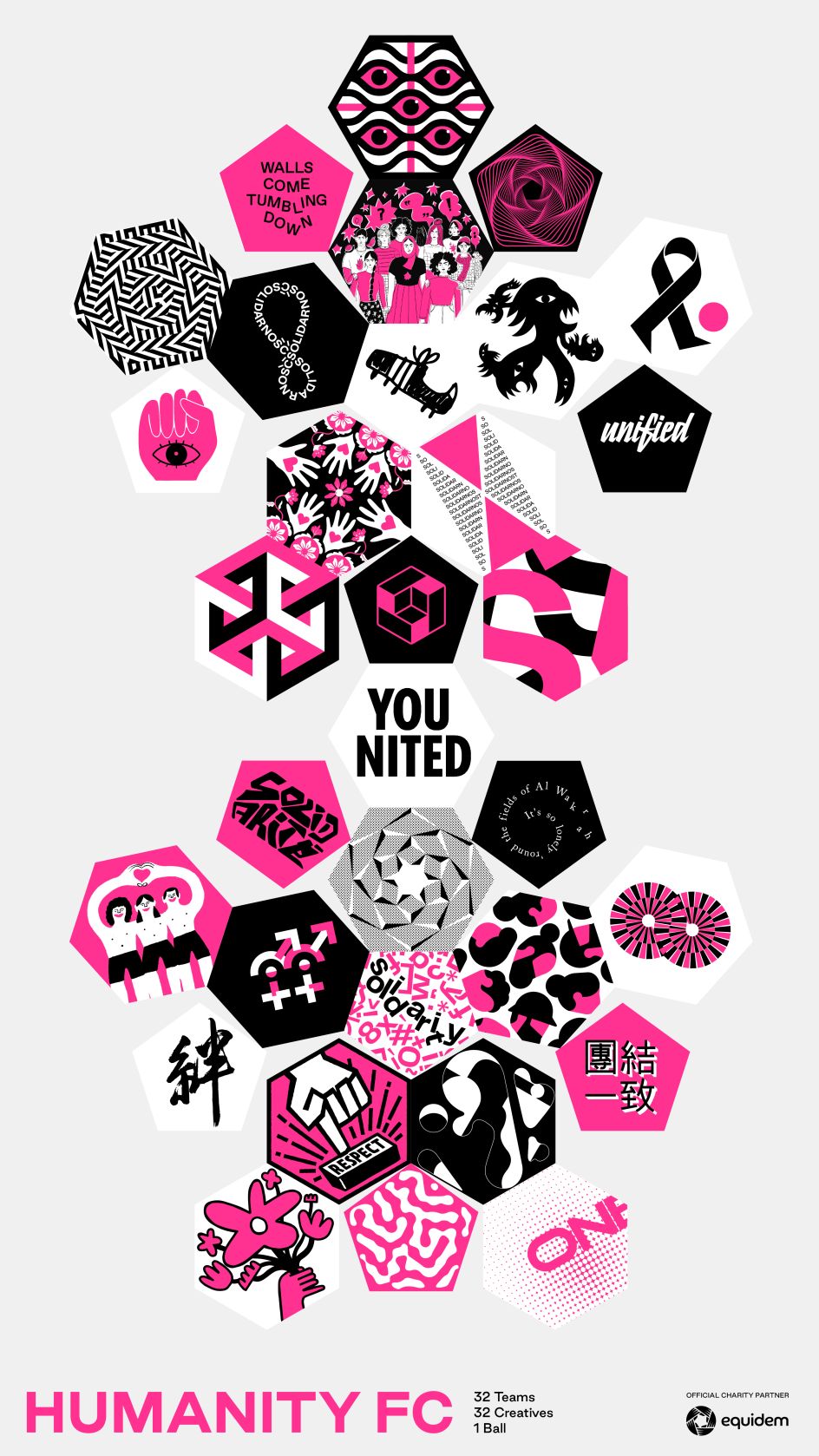
Credit: Ico/Humanity FC
That desire for positive impact is becoming increasingly ubiquitous in the conversations designers and agencies have about their role in business, culture, and the world. The ongoing response to the World Cup is just one of many ways designers use their skills to create progress. It's heartening to see so many designers and agencies unite in favour of humanity over commercialism – it's a sign that the role of design, especially in something so globally commercial as the sports industry, is shifting.
Will designers continue to use their skills to highlight humanitarian issues, pressure institutions worldwide to do better, reject corruption and exploitation, and adapt better and more humanitarian practices? Ico's Vivek Bhatia thinks so.
"One thing I have learned from this is that anything we do around a World Cup or a sporting event, I think it's important to have a point of view on it," adds Bhatia. "And to express that point of view in an interesting, compelling way – not to brush any controversy under the carpet."




 by Tüpokompanii](https://www.creativeboom.com/upload/articles/58/58684538770fb5b428dc1882f7a732f153500153_732.jpg)


 using <a href="https://www.ohnotype.co/fonts/obviously" target="_blank">Obviously</a> by Oh No Type Co., Art Director, Brand & Creative—Spotify](https://www.creativeboom.com/upload/articles/6e/6ed31eddc26fa563f213fc76d6993dab9231ffe4_732.jpg)








